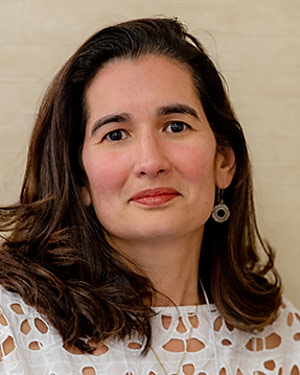-
Cindy James, PhD SCM

- Research Director, Johns Hopkins Center for Inherited Heart Diseases;
- Associate Professor of Medicine
Research Interests: Arrhythmogenic cardiomyopathies, Cardiovascular genetic counseling
Research Publications
-
Sonja A. Rasmussen, MD MS
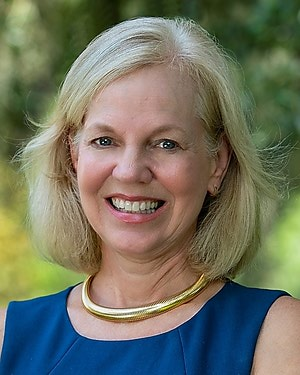
- Professor of Genetic Medicine
Research Interests: <ul> <li>Genetic and environmental risk factors for birth defects</li> <li>Morbidity and mortality associated with genetic conditions</li> <li>Effects of infections and medications during pregnancy </li> </ul>
Research Publications
Genetic Counseling Research Fellowship
Master’s level genetic counselors will leverage expertise at Johns Hopkins to build skills in developing and conducting independent research in genomic medicine or research involving ethical, legal and social implications (ELSI) of genetic and genomic research.
This new fellowship program, called Promoting Genetic Counselors in Independent Research through Advanced Training and Education (PROMOTE-GC), is funded by the National Human Genome Research Institute (NHGRI) and provides a salaried position to participating fellows.
PROMOTE-GC is a part-time, paid, personalized, practical, two-year research fellowship designed to build the research capacity of masters-level genetic counselors.
Enhancing the research capacity and knowledge of genetic counselors gives vital members of the genomic medicine workforce input and insight into the research enterprise.
Have questions?
Attend a webinar to learn more and ask questions about the PROMOTE-GC fellowship on either Jan. 15 at 11 a.m., ET or Jan. 21 at 1 p.m., ET. Register for the webinar.
“Being comfortable and confident in research skills opens up opportunities to expand your career, and for many, brings professional satisfaction.”
Johns Hopkins genetic counselor Gretchen MacCarrick
Fellowship Features
-
- Embed in a funded genomic medicine or ELSI research team for the duration of the fellowship to learn skills for conducting independent research, including skills in study design, data analysis and scientific presentation.
- Provide presentations on your completed research to local, regional and national audiences.
- Publish scientific manuscript(s).
- Receive mentoring from a three-member team of experienced ELSI/genomic medicine researchers, including at least one genetic counselor, tailored to your research interests and goals.
- Work one on one with a funded member of the mentoring team to develop a draft research grant to be submitted for an eligible federal, foundation or professional research award.
-
- Select from a flexible sequence of highly rated courses on research methods, which are offered through the Johns Hopkins University Summer Institutes in the schools of public health and nursing, the Johns Hopkins Berman Institute of Bioethics and the Johns Hopkins Science of Clinical Investigation Training Program.
- Participate in a Johns Hopkins University School of Medicine course focused on and tailored to the needs, theoretical grounding and practical aspects of genetic counseling research.
- Optional (with travel funding available): Attend an intensive research course that will provide training on advanced research methods and help build a participant’s research community.
-
- Engage with other scientists in evaluating new research by attending relevant seminar series, journal clubs.
- Work with mentors to identify an expert in a particular field or method of study, and develop a plan for collaboration as a co-investigator or consultant on a grant submission.
- Join a research-focused committee or interest group in a research-focused genetics professional society, and take part in at least one initiative.
- Develop and submit a research-focused webinar or conference session for a genetics professional society meeting.
Duration
Fellows will work part-time (typically 50% effort) for two years with a mentoring team, although higher percent effort and shorter fellowship length may be accommodated. Start dates will be flexible to accommodate fellows’ other work responsibilities.Location
Fellows will work mostly on a remote basis, with an average of one week a month on-site at the Johns Hopkins East Baltimore medical campus. Funding is available to assist with travel expenses. The timing and duration of on-site visits is flexible to meet the research needs of the fellows.Application
We encourage potentially interested genetic counselors to email Cindy James, Sc.M., Ph.D., C.G.C. (cjames7@jhmi.edu) to discuss PROMOTE-GC and alignment with your career goals and interests. Submit the application materials below to Karen Reyes (kreyes7@jh.edu). Applications will be reviewed on a rolling basis, with the first set of application reviews beginning Jan. 15, 2025. Highly rated candidates will be invited for an interview and opportunity to meet PROMOTE-GC faculty, mentors and research preceptors.
Submit your application with the following steps:
- Complete the application form.
- Submit a curriculum vitae or resume.
- Provide a statement of research interest (up to 1,500 words in length).
- Submit two letters of recommendation, with at least one from a colleague or supervisor who can describe your exposure to and success/engagement in research.
Fellowship Completion
Upon completing the PROMOTE-GC fellowship, fellows will have received extensive education in research in ELSI and/or genomic medicine and will be equipped to lead and collaborate on research grants.
Eligibility
Applicants should be board-eligible or board-certified genetic counselors at the master’s level, at the early- or mid-career level with a demonstrated interest in research.
Read about eligibility below:
-
Applicants must be a graduate of a master’s degree-granting genetic counseling training program accredited by the Accreditation Council for Genetic Counseling (ACGC) Standards of Accreditation. ACGC is the accreditation board for graduate programs in genetic counseling in the United States and much of Canada (excluding Francophone programs).
-
Applicants must not have a doctorate degree in a relevant clinical or research domain. This includes clinical doctorates (M.D., D.N.P., etc.) and research doctorates (Ph.D., Sc.D., Dr.PH., etc.). They must not be concurrently enrolled in any degree-granting educational program. Multiple master’s degrees are acceptable unless the master’s level training substantially overlaps with the scope of the proposed research training program. Overlap will be discussed on a case-by-case basis by program faculty with Internal Executive Committee consultation. Applicants with an additional master’s degree(s) will be asked to show the curricula of their program for review.
-
Applicants are required to have graduated from an ACGC-accredited genetic counseling training program at least one year previously.
-
If they graduated from a genetic counseling training program at least five years ago, applicants must have received certification (C.G.C.) by the American Board of Genetic Counseling (ABGC). Newer graduates must be board eligible with active candidate status.
-
Research interest will be demonstrated as part of the application and interview process. The following research products demonstrate research interest:
- first author publication(s)
- successful application for small-scale research funding (less than or equal to $50,000 direct costs) as a principal investigator (National Society of Genetic Counseling special interest group, internal institutional program, patient foundation, ABGC or NSGC research awards)
- successful development of a quality improvement project
- successful or unsuccessful application to a larger-scale (greater than $50,000 direct costs) grant.
- Considerable research experience will be defined as being the principal investigator of one or more R01-level projects, greater than $100,000/year in active research funding, or more than 10 first author original research publications.
-
Applicant must be a U.S. citizen or permanent resident.
Fellowship Funding and Collaborative Groups
Funding is provided by the National Institutes of Health/NHGRI to launch the Promoting Genetic Counselors in Independent Research through Advanced Training and Education (PROMOTE-GC) fellowship (grant: R25HG013471). Funding will support the training of up to six PROMOTE-GC fellows.
Fellows will work with ELSI and genomic medicine experts across The Johns Hopkins University and collaborate with the Berman Institute of Bioethics Enhancing Diversity among Future ELSI Researchers NHGRI R25-funded training program led by Debra Matthews, Ph.D.
Contact
For questions about the fellowship, contact Cindy James (cjames7@jhmi.edu) and Karen Reyes (kreyes7@jh.edu).
Leadership
The PROMOTE-GC fellowship directors are board-certified genetic counselors with additional training in research and who now have research-focused careers.
Directors
Other Investigators
-
Debra J. Mathews, MA PhD

- Assistant Director for Science Programs, Berman Institute of Bioethics
- Professor of Genetic Medicine
Research Interests: Intersection of science, public policy, and society
-
Weiyi Mu, SCM

- Assistant Professor of Genetic Medicine
Research Interests: Diversity and Equity Within Genetic Medicine, Family Communication, Genetic Testing Utility and Outcomes, Genetics of Neurodegenerative Disorders, Illness and Risk Perception
Research Publications
FAQs
-
- PROMOTE-GC fellowships are part-time paid positions with benefits.
- No tuition costs.
- Start date is flexible.
- Effort can range from 50%–80%.
- Fellowships generally last two years.
- Funds are provided for travel and housing ($6,000 per year) to support on-site time at the Johns Hopkins East Baltimore Campus in Baltimore.
- Funds are provided for an intensive research methods course outside of Johns Hopkins, if desired.
- Research methods course selection is flexible and tailored to participant needs.
- At the end of the program, each participant will have at least one submitted research paper and will have a research grant proposal ready for submission.
-
Yes, PROMOTE-GC fellows will be paid salary and benefits based on those available for Johns Hopkins genetic counselors.
-
No, PROMOTE-GC includes tuition for all coursework. Tuition and travel funds are also available for one intensive course, if desired.
-
The fellowship start date is flexible.
-
PROMOTE-GC prioritizes personalized, flexible research education. We include flexible research methods courses, intensive mentoring, embedding in a research group, and deliberate preparation for grant submission.
-
Yes, we expect most fellows will continue to work in their current position at a reduced level of effort.
-
Nearly all research courses are available online. On-site time will be dedicated to working with research preceptors, your research team and program mentors. Timing and duration of travel is flexible, but we anticipate an average of one week per month will suit many. Funding is allocated to support travel.
Research Preceptors
-
Mary Armanios, MD
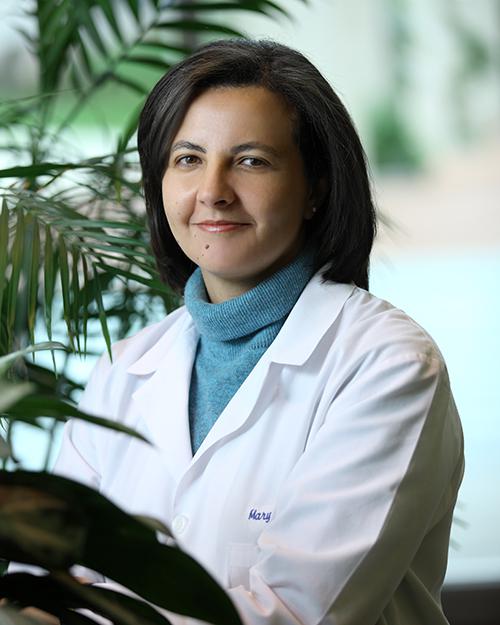
- Director, Telomere Center at Johns Hopkins
- Professor of Oncology
Research Interests: Telomere and Telomerase-Associated Disorders
Research Publications
-
Andreas Barth, MD PhD
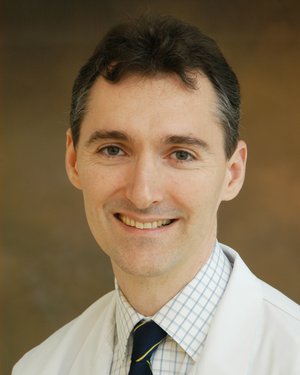
- Medical Director, Inherited Heart Diseases
- Associate Professor of Clinical Medicine
Research Publications
-
Garry R. Cutting, MD

- Aetna/U.S. Healthcare Professor of Medical Genetics
- Professor of Genetic Medicine
Research Publications
-
Hal C. Dietz, MD
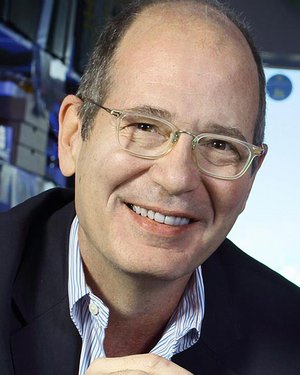
- Investigator, Howard Hughes Medical Institute
- Professor of Genetic Medicine
Research Interests: Cardiovascular genetics, Connective tissue disorders, Genetics of aging, Molecular basis of inherited disorders of vascular development and homeostasis, Nonsense-mediated mRNA decay, Pathogenesis of Marfan syndrome
Research Publications
-
Tony L. Guerrerio, MD PhD
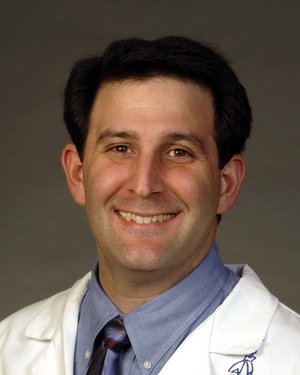
- Director, Very Early Onset Inflammatory Bowel Disease Clinic
- Associate Professor of Pediatrics
Research Interests: Eosinophilic esophagitis, gastroenteritis and colitis, Immunodeficiency, Inflammatory bowel disease
-
Cindy James, PhD SCM

- Research Director, Johns Hopkins Center for Inherited Heart Diseases;
- Associate Professor of Medicine
Research Interests: Arrhythmogenic cardiomyopathies, Cardiovascular genetic counseling
Research Publications
-
Angie Jelin, MD
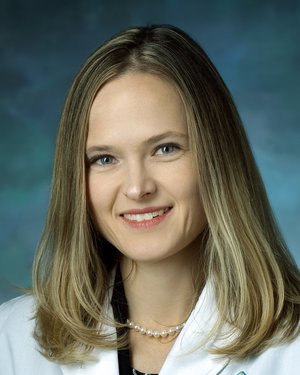
- Program Director, Maternal-Fetal Medicine Fellowship
- Associate Professor of Gynecology and Obstetrics
Research Interests: fetal genetic disorders, whole exome sequencing
-
Seth Martin, MD MHS
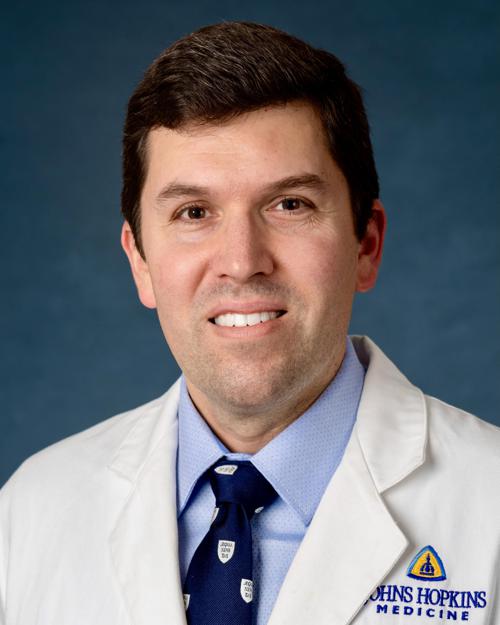
- Director of the Advanced Lipid Disorders Program and Digital Health Lab, Ciccarone Center for the Prevention of Cardiovascular Disease
- Professor of Medicine
Research Interests: Atherosclerosis Imaging, Cardiovascular Risk Assessment, Dyslipidemia, Improved strategies for management of cardiovascular risk factors, Individuals with a family history of heart disease, Lipids, Mobile Health Technology, Preventive Cardiology, Primary and secondary prevention of coronary heart disease
Research Publications
-
Debra J. Mathews, MA PhD

- Assistant Director for Science Programs, Berman Institute of Bioethics
- Professor of Genetic Medicine
Research Interests: Intersection of science, public policy, and society
-
Hilary J. Vernon, MD PhD
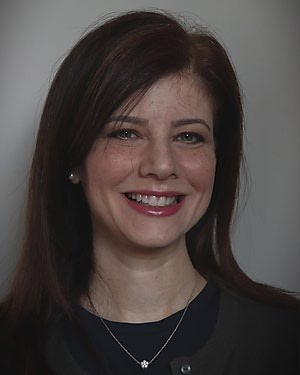
- Professor of Genetic Medicine
Research Interests: Clinical laboratory biochemical diagnosis, Molecular and metabolic pathogenesis of Barth Syndrome, Molecular and metabolic pathogenesis of organic acidemias
Research Publications
-
Ambroise Wonkam, MD PhD DMSc
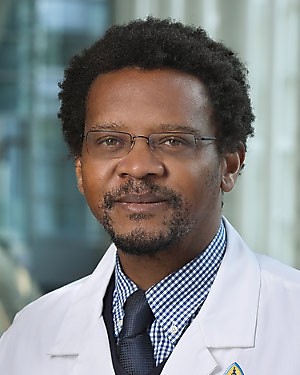
- Henry J. Knott Director of the McKusick-Nathans Institute and Professor in Medical Genetics
- Professor of Genetic Medicine
Research Interests: Ethics in Human Genetics, Genetics of Congenital Hearing Impairment, Sickle Cell Disease


